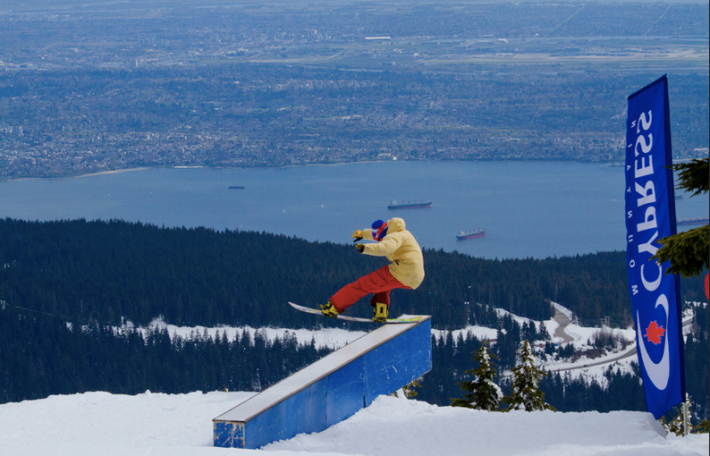At the beginning of the January semester, a group of teenagers from different schools across the city gathered in a second floor classroom at Britannia secondary and were introduced to an exotic culture most of them knew little to nothing about.
The students weren’t there to learn about the ancient Greeks, the feuding Montagues and Capulets or any of the other mainstays of Vancouver School Board high school curriculum.
Instead, they were there to learn about snowboarding.
The nearly 20 students are the latest members of the Aboriginal Snowboard Team, a 12-week program launched last year by volunteers who take at-risk youth up to Cypress Mountain and open the door to a healthy recreational pursuit and even a potential career path.
“We had 14 kids, seven boys and seven girls, apply last year and they were all at-risk kids and most of them had never even been to the North Shore mountains before,” said Trent Gauthier, an aboriginal enhancement worker at Killarney secondary. “About a third of them were in alternate schools and a few of them were children in care of the ministry. Every single one of them finished the program and got their snowboarding coaching certificates, which is incredible because it is hard to get a hundred per cent completion rate on anything in schools.”
The success rate is even more impressive given that, according to recent school board stats, fewer than a third of aboriginal students earn their Dogwood Diploma each year, compared to 82.5 per cent of non-aboriginal students.
Not only did they all graduate from the pilot project but many of them have come back again this year to help mentor other kids strapping on their first pair of boots and bindings.
Lacey Costucci-Phillips, a bright-eyed 16-year-old Gladstone secondary student, says she has fallen in love hard with the sport after a literally bumpy start last year.
“It was really hard at first and I wiped out a lot but it was probably one of the best things I’ve ever learned to do,” she told the Courier. “I’m totally psyched to be back and help get other people into it. It’s by far my favourite thing to do now.”
The special after-school program, which operates without any direct funding from the VSB and relies entirely on donated time, transportation and equipment, was the brainchild of Renee Diemert, a Metis woman and former ski patroller who is now the school board’s learning and development consultant for aboriginal education.
Diemert, who grew up skiing on Vancouver Island, says the sense of accomplishment that comes from mastering a challenging new sport has an immediate impact on other areas of students’ lives.
“Snowboarding is something that takes courage and determination to do and you don’t just pick it up right away,” she said. “It’s just so wonderful as a teacher to see the kids grow in their skills and their confidence every time we go up to the mountain. It gives them a real sense of pride that they can then bring back to school and feel they can now do things they might’ve thought they couldn’t before.”
Diemert has also arranged for students to participate in job-shadowing at Cypress, where they can be exposed to a variety of potential employment opportunities ranging from teaching to mountain operations, snow removal, retail and guest services. She hopes that students will eventually be able to earn school credits through the program as well.
It seems somehow fitting that First Nations members are nurturing a passion for snowboarding because, in a roundabout way, the sport owes much of its current popularity to aboriginal culture.
In the early days of snowboarding when most ski resorts didn’t yet allow them, people often turned to using snowshoes in order to access backcountry terrain. This might never have happened if, untold centuries ago, North America’s original inhabitants hadn’t first figured how to build special snowshoes to get around on top of the snow.
“I grew up spending as much time as I could in the mountains and it is great to be able to give these kids a chance to get out of the city and hopefully help them continue on and maintain a healthy lifestyle. It just opens up a whole new world for them,” said Diemert.

